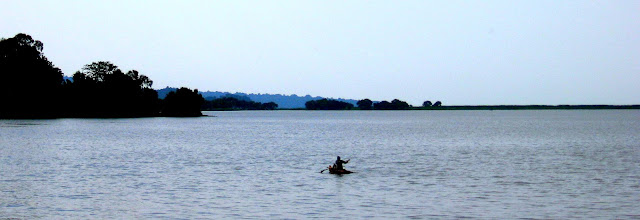Reason 237 I wish I spoke Amharic: Our house has been
without water for two days.
But it’s not just us. Much of Addis is also dry because the
city has turned the water off for a few days for maintenance work. Apparently,
this was announced on local radio and tv so people could prepare . We missed
the message – and I feel like we really only have ourselves to blame.
There’s an ongoing joke amongst expats in Ethiopia that the
only Amharic a ferengi needs is Ishi, Beka, Ciao – ‘Okay’, ‘Enough’, ‘Bye’. And
while these words will get you pretty far –and it would probably be smart to
throw in amaseganalo or ‘thank you’ for good measure- there are many days where
I lament not knowing just a bit more of the language.
So far I have managed to learn some numbers, some greetings,
enough vocabualry to buy vegetables, take minibuses and shoo away persistent
street vendors and beggars. I hope to keep learning more before my time is up,
but sometimes I think my obliviousness to what people are saying as I walk by
them on the street may be a blessing.
Some of my favourite things about Amharic so far…
The quickest way to get a smile from an Ethiopian is to use
an Amharic word. It doesn’t need to be in a sentence or pronounced correctly
but your almost always guaranteed a positive response (although happiness might take the form
of them laughing at you).
Ethiopian greetings sound like the world’s longest
run on sentence. Greetings are rapidly said one over another, neither person
waiting for the other’s response but rather repeating ‘how are you’ in various
forms, alongside some references to God’s grace/will. As a result I have also started
doing this English, responding to my colleagues questions of how was your weekend
by repeating multiple similar inquiries, with neither of us ever actually answering the
question.
My name in Amharic is Rahel – and Ethiopians love to inform
me of this fact and are thrilled when I respond to the use of this name. From
my side, Rahel sounds much nicer than when they try to pronounce the hard ‘a’
that most non-native English speakers turn into a harsh ‘ee’. It is also
considerably easier to remember than my Sesotho name from my time in Lesotho:
Nthabiseng.
I cannot read any of the 350+ characters in the Amharic
alphabet but I love seeing it anyways. I remember on my first big backpacking
adventure around Europe I was thrilled when I reached Bulgaria and had to start
navigating Cyrillic script. It felt like travelling was finally starting to a
feel a bit more challenging, everything was a bit more lost in translation, and
it was exciting. Most days, I still associate this feeling with Amharic writing. The only exception being when I am trying to catch a mini-bus at rush
hour and all the locals can read the destination on the small sign fixed to the
top of the blue and white van. By the time it has come close enough for me to
hear the route being called out a crowd has swarmed the door and there is no
chance I am getting on.
Ethiopians will use a quick intake of breath to say yes. As
a result they often sound excited and/or surprised about the most basic
sentences. And no matter how many times I hear it, I don’t get used to it. Conversations are much more exciting when it feels like people are
shocked by everything I say.





.jpg)

































